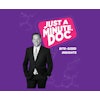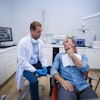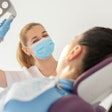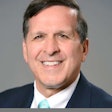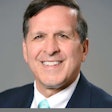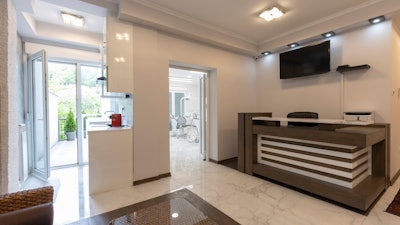
Playing too many tunes from Taylor Swift’s poppiest-sounding album “1989” in waiting rooms may have positive and negative effects on dental patients. They may feel anxious but expect a short wait in the reception area, according to a new survey.
Hearing certain genres of music in dental waiting rooms may affect patient emotions and perceptions. Additionally, a person's preferred music genre correlated with their lifestyle and health habits, according to a survey conducted by the patient automation platform Tebra.
“Music’s role in the waiting room is more than a backdrop; it could actually impact patients’ perceptions and behavior,” according to the company.
To understand how music can affect patient experience, the company conducted surveys and analyzed waiting room playlists on Spotify.
More than 1,000 adults in the U.S. responded to surveys about their health habits and music preferences. They could select up to three genres they enjoyed. Of the participants, 58% were fans of rock, 50% were fans of pop, 25% were fans of hip-hop/rap, 18% were rhythm and blues fans, 16% liked country, 15% liked classical music, 15% liked metal, 13% listened to electronic, 13% listened to indie, and 12% listened to jazz, according to the survey results.
Furthermore, 59,363 songs from 286 playlists on Spotify that contained terms associated with doctor’s offices, dentist’s offices, and waiting room were analyzed to find the most played music in waiting rooms.
When it came to patient wait times, different music categories affected patients’ perceptions. Patients perceived the longest wait times when they heard the twang of country songs in the waiting area, while patients who heard pop music viewed wait times to be the shortest.
However, patients also associated hearing pop music in the waiting room with anxiety, and they correlated classical music with pain, according to the results. Furthermore, country music fans were the most likely to visit the dentist regularly, while lovers of classical melodies were the least likely to make it to dental chairs.
Additionally, music preferences may be linked to lifestyle and health habits. Healthiness was measured by whether survey respondents drank 16 cups of water daily, ate fruit and vegetables, got eight hours or more of sleep regularly, and exercised.
In terms of specific habits, listeners of indie rock were the most hydrated and got in the most physical activity. Those who gravitate toward Mozart and Bizet ate the most vegetables, folk music listeners ate the most fruit, and electronic music lovers regularly got enough sleep, according to the company.
“Music may have the power to be more than just entertaining -- it might even encourage a better healthcare experience,” according to Tebra.


